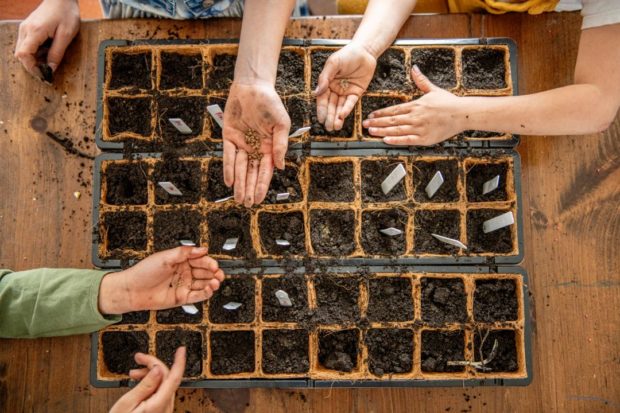MANILA, Philippines — Will planting, this time around, be fun?
To motivate the youth’s interest in agriculture, Camarines Sur Rep. Gabriel Bordado Jr. has proposed a measure that will start them young — by teaching farming and related skills in public elementary schools in the country.
In filing House Bill No. 6535, Bordado said that “despite the geographical advantages and abundance of natural resources that could have made the Philippines one of the top agricultural countries in this region, the sector is often overlooked.”
“Agriculture plays a vital role not only in food security but also in providing economic growth and employment for many Filipinos,” said Bordado.
The bill seeks to encourage kids to grow an interest in and explore agriculture and its benefits and potentials through mandated classes in elementary school.
“The country’s agricultural industry is unable to realize its potential. Most small farmers are left with outdated practices,” Bordado said. “Interest and focus on the sector seems to be diminishing as the country puts more emphasis on infrastructure building and urbanization.”
Economic benefits
Bordado pointed out that agriculture, if sufficiently and consistently supported and enhanced, could result in a robust and thriving economy.
“In order to revitalize an often neglected sector, there is a need to invite fresh and innovative ideas, especially from the youth who will be future leaders and professionals in charge of building and sustaining a prosperous nation,” he said.
Bordado said HB 6535 would task the Department of Education (DepEd) to establish agriculture classes for all students in all public elementary schools.
The measure provides: “Classes on agriculture shall aim to develop an interest and maximum basic competencies for elementary students in public schools to prepare them for possible careers in the agricultural sector and to make them valuable assets to the community and the nation in the future.”
Once enacted, it will task DepEd to work with the Department of Agriculture in crafting the implementing rules and regulations.
Agriculture and related fields such as fisheries and agricultural research are taught in the country’s more than 100 state universities and colleges, but young Filipinos don’t choose them as their future professions.
GDP share
Bordado said the share of the sector in the gross domestic product (GDP) has remained below 11 percent in the past six years and trade has been declining, lagging behind neighboring countries in knowledge and technology.
For 2021, the Philippine Statistics Authority placed the share of agriculture, forestry and fishing in the GDP at 9.6 percent, with 10.66 million people, or 24.2 percent of the country’s workforce, employed in the sector.
In the same year, the government had allotted P143.36 billion to agriculture and agrarian reform, or 3.2 percent of the total expenditures.
